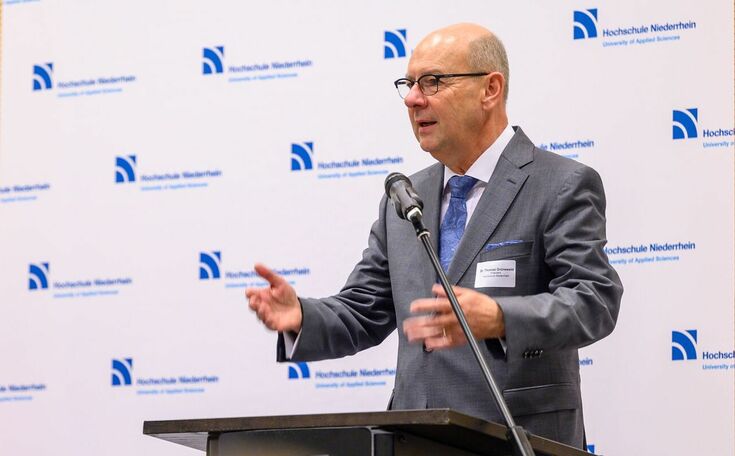The structural change in the Rhenish lignite mining area in the city triangle of Aachen, Mönchengladbach and Cologne/Bonn will have a major impact on the region in the coming decades. Six universities of applied sciences from this area have joined forces in the Transferallianz Rheinisches Revier (TARR) to use their scientific expertise to help shape change for the people and the region. The cooperation was launched in summer 2021 and the participating universities have now signed a concrete agreement.
In the agreement ratified by all participating universities, TARR formulates its primary goal: the organization and implementation of joint structural change projects with the aim of science transfer in the Rhenish mining area. The members of the alliance will pool their expertise in order to provide scientific support for the region's structural change and thus assume joint responsibility for shaping structural change in the region. To this end, they will develop joint activities that bundle the specialist expertise of the participating universities and enable synergies.
The universities want to work closely with local authorities, companies, non-governmental organizations and society. Only together can change succeed.
"We have put together a powerful community that will work hard for technical and social innovations for the region. We all have many years of experience in the transfer of knowledge to society, which we will bring together profitably," says Dr. Thomas Grünewald, President of The Hochschule Niederrhein and spokesperson for TARR. The chairmanship alternates annually between a president or a rector of the participating universities. Together with a Vice-President, this spokesperson duo is one of the three central bodies of TARR, alongside the Board of Sponsors and the Standing Committee.
In addition to the Hochschule Niederrhein, the Aachen University of Applied Sciences, the Catholic University of Applied Sciences North Rhine-Westphalia, the Cologne University of Applied Sciences, the Bonn-Rhein-Sieg University of Applied Sciences and, as an associate member, the Rheinische Fachhochschule Köln have signed the agreement. This community is supported by the Aachen, Cologne and Middle Lower Rhine Chambers of Industry and Commerce.
An operational TARR office is now being set up at Aachen University of Applied Sciences. The activities of the universities will be coordinated from there.


















